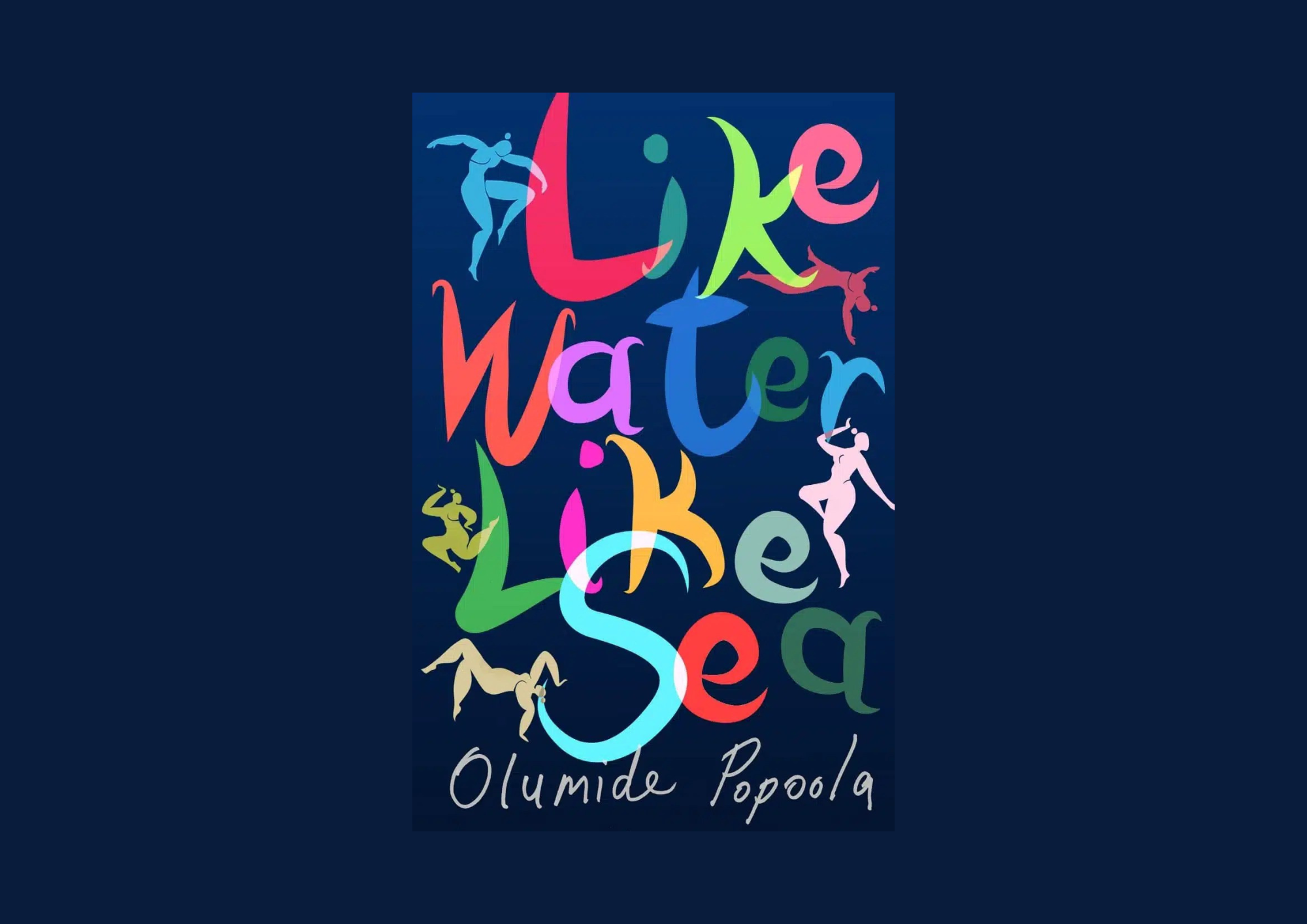Water is a tool often employed in literature. The imagery of it, the feeling of it, the way it swallows whole and spits out at the same time. It is a fearsome, awesome thing, water. Think of the sea, how all-encompassing it is, that we truly know very little about it, yet we lie in it and have the ability to feel many things – calm, rootless, alive, it’s a miracle. In Like Water, Like Sea, Olumide Popoola fully leans into this imagery as she invites readers into the main character, Nia’s life. Ten years after her sister Johari’s death by suicide, Nia still wavers. We follow Nia from teenagerhood through her 20’s and 30’s up until her 50th birthday. We see her falter several times as she deals with the grief but by the end of it, though much of her sentiments remain the same, she seems to have a better understanding of herself and her life. This is a book about the never-ending impacts of grief and depression and how like water, it can roll on and on and on.
The story is good commentary on how possible it is to feel alone despite having so many people around you. Nia feels the weight of the world physically, mentally and emotionally and at certain points, you might wonder if she’s moving through the world with no community. That’s far from the case though. Nia is undoubtedly loved. Whether or not she is loved the way she needs to be loved remains a question for the reader to answer but she certainly has people in her corner. From her best friend, Melvin to her mother, Susu and other transient characters, Temi, Crystal and Rahul, she is not without people, but the aloneness persists. Imagine lying in the middle of the big, blue, deep sea, all the world and its inhabitants around you and still feeling like it’s only you. This is Nia.
In an interesting but bold choice, at one point Nia contemplates suicide herself. She thinks about, ”The water swishing against [her] face, a thin layer, not enough to enter [her] nostrils”. She talks about wanting “to know what it was like, to be drowning, losing your breathing to suffocation” and how “Of course, [she] didn’t last…didn’t have enough drive to do it, didn’t have enough reasons”. How “You would have to be invested in the idea, digging deep for this to be your final answer. Nothing like that was on [her] mind”. That she “wasn’t feeling despair. Not in that way”. Nia talks about how “It is hard to take your own life…Such an effort, incredible…You had to orchestrate the whole thing and pay attention to the variables.” That she is still so plagued by her sister’s death and in her own grief considers the very act which took her as reprieve for herself, is sharp commentary on acts of desperation and how we can be driven to make certain choices when we feel there’s no other option.
On the tenth anniversary of Johari’s passing, we see Melvin read Audre Lorde’s incisive poem, “A Litany For Survival”. Much of literature is borne from already great literature. Think of the quote that says great readers make even better writers. Popoola reminds of this at this point. The poem is a marvel in itself but readers can instantly see why it’s Melvin’s poem of choice. The beginning mentions that it is “For those of us who live at the shoreline standing upon the constant edges of decision crucial and alone… who when alone, are afraid love will never return…For those of us who were imprinted with fear…afraid love will vanish… that when we speak, our words will not be heard nor welcomed”. An ode to Nia if there ever was one. Every day, she floats, and the weightlessness persists for herself and for Johari.
Structure wise, the novel is fragmented. One imagines that this is intentional to mirror Nia and her state of being. She often moves from one feeling to another, with no clear frame of thought, much like a wave. The chapters are often short and choppy, from a different character’s perspective each time and always with one of three titles, The Climbers, The Swimmers and The Dancers—readers will be led to think about the ways different people move through life, climbing aggressively with an aim in sight, swimming through it, floating and slow, or dancing through it, fluid and adaptable. A commendable approach although at times, it makes for a disjointed reading experience. It is possible to finish most chapters and feel unsteady, perhaps readers are meant to feel like Nia. Whether this is enjoyable or not, would be a personal preference.
If you happen to be looking for a story that draws you in and throws you out all at the same time, much like the sea, this might be the one for you. You are guaranteed to experience the full range of emotions with this one. However, if like many readers, you prefer a firmer reading experience then this might not be the one for you. Nevertheless, the necessity of Nia’s story cannot be overlooked. This is a story that invites us to think about what it means to fall apart, surrender to feeling and emotion and break our walls down. Whether you relate or not, Nia’s perhaps involuntary willingness to do this, sparks much thought.
Leaning into falling apart means embarking on a search for truth, about ourselves and the world. Like Water, Like Sea asks if we might be brave enough to do the unthinkable. This, I think, is always a question worth asking.
Anna-Maria Poku
Anna-Maria Poku is a Ghanaian writer and book reviewer. She writes about love, life and all the things in between. She has works in publications including Litro, Lolwe and Afreada. When she's not writing or reading, you can find her on @annasreads across socials.





